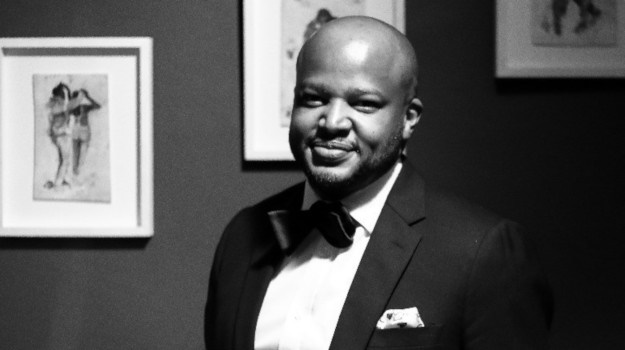
- Finance Minister Tito Mboweni began his tenure as Governor of the Reserve Bank at the tender age of 40, having to work to gain the respect of people within the institution.
- This was no easy task, and he was at times dismissed as aloof, but grew into an imposing figure.
- Today, he still speaks his mind, but has gained a flippancy that perhaps detracts from the gravitas he needs to deal with the challenges of the day.
"Aloof" is a word that was often used by the men and women that were in the most senior government posts in the terms of former president Thabo Mbeki.
It was used in the period building up to his ouster, bandied about by his critics both inside and outside the party as they hoped to usher in the supposedly more "charming" and affable Deputy President Jacob Zuma as his replacement. Mbeki, along with his inner sanctum, were derided for not having the common touch and not being able to understand the struggles of the common man, and so began the ANC’s slide into a political arena of ever-increasing populism after the last global recession.
Of course there were deeper divisions than merely the different personal skills of the two gentlemen, but the liberal use of the word "aloof" was one of the things stood out most for me all those years ago. Many an editor, political opponent or "intellectual", having been slighted by the former president, had disdain for what was called the "1996 class project" and believed it must be undone. It was an interesting time in our history, as all the dutiful lieutenants of this project were attacked from all corners with terms as distasteful as "clever" blacks.
Hardly indifferent
But indifference was not something that I’d ever use to the describe the nature of the Mbeki administration; it was instead an executive that was driven by a clearly outlined vision for just how the state should function and what country ought to be built. A drive that could be construed negatively by some, especially for those outside that inner sanctum or those in disagreement with the direction.
It’s most unfortunate that an inability to dance or to sing would at the end of the day help unleash an era of "populism" led by a president who, at the end of the day, was no servant of the people.
Of all the lieutenants of the Mbeki administration that met its end after the ANC elective conference on that cold and rainy weekend in the height of summer in Polokwane some 13 years ago, no-one carried the "aloof" tag as much as Tito Mboweni. It was clear on that Sunday as people digested the end of an era, that his time in public office was also at its end.
At that stage, he was still heading up the Reserve Bank as its governor, a moniker that he wholly embraced as he went about his job of guiding monetary policy. For a decade he served as the country’s first black and ANC-appointed central bank head, starting at the tender age of 40. At this relatively young age, he had to first work to gain the respect of people within the institution that reaches its centenary next year, and then look to establish his own credibility in locally and internationally.
This was a difficult task, as I am sure many of those young civil servants that were thrust into positions of authority in the early years of the country’s transformation would attest. For Mboweni, he was thrust into a world of monetary policy that was and perhaps still is a game reserved for old men the world over.
Boys' club
His peers at the US Federal Reserve and the Bank of England were 73 years old and 61 years old respectively at the time of his appointment. In the company of this "boys' club", which included the likes of Alan Greenspan, I can imagine one being rather easily intimidated. But if he was, he certainly was never one to show it, as he sought to build his credibility both at home and abroad.
I can imagine much of his early years in that seat being all about batting off questions about his readiness or understanding of the levers of monetary policy.
I was but a young reporter in business newsrooms during this time and can remember some senior writers returning from yet another bruising central bank press conference where Mboweni had admonished one of them for posing a pathetic question or for not addressing him appropriately.
Some sniggered at his airs and graces, but if you were to ask any of the unfortunately still very few black men and women at the helm of any of our large corporates, the most important task is just being addressed correctly. It’s not as easy as you may think. So I both understood and was tickled by some of his eccentricities.
From sniggers about his airs and graces, Mboweni gradually grew into a rather imposing figure at the Reserve Bank, one who doggedly followed through on his mandate. Inflation, often an unwieldly beast in decades past - was largely brought under control and he oversaw a relatively strong rand through much of the course of his tenure. Along the way, outside of gaining respect from the grandiose New York and London circles that come with being a central banker, he had to fight some bruising battles from the safety of his tower in Pretoria. Namely within his party and its alliance partner, Cosatu, inflation targeting. It’s a long-running battle that his successors continue to wage.
For his almost "Churchillian" manner with which he went about his job of leading monetary policy and rejecting any political criticism, it made Mboweni one of the targets of the cleansing of the ANC in 2007. He was one of the three "TMs" (Thabo Mbeki and Trevor Manuel being the other two) who quite simply had to be moved on from any public office in future.
Once his term was up in 2009, his supporters saw that wish fulfilled. He was left to wander the private sector and like any other black entrepreneur struggle to fund ventures such as iron ore mine in his home province.
Chairmanships, however, were easier to come by, and I can imagine he enjoyed this season of his life. So when he was dragged back into active party politics to replace Nhlanhla Nene in 2018, it came with much persuading and he would be the first to admit as much.
The return of the old Mboweni?
Now given our desperate fiscal position, you’d think someone with a little more enthusiasm would be a better candidate. Sadly though, the "wasted" nine years had sullied the reputations of many, leaving few credible candidates outside the former governor. Accepting this truth, I’d hoped the Mboweni of yesteryear, who cast such a huge shadow at the Reserve Bank would be the same man to take the mantle of the country’s finances. He hasn’t and his presence at National Treasury is not as towering. But maybe it’s a bit unfair of me to have expected the old Mboweni to have ever returned.
Instead, what we have found in our fifth finance minister since Zuma became president in 2009, is a man still very independent in thought, but also one rather flippant. I have no other word really to describe how he dismisses some of the political noise that comes with his job.
He has remained a man not afraid to tell it like it is, which is needed in a party that has seen its intellectual strength weaken over the years. But in his strops on social media, he seems a man almost willing to give up the fight. Given the perilous nature of this country’s finances, it’s not a message that provides any comfort at all. But perhaps there’s method in the madness as the one thing it does is ensure is that no-one gets lulled into any sense of complacency with our current trajectory. It certainly is working.
But at some point, Mboweni, along with his president, is going to have to take hold of the reins of these galloping horses driven by all our common ailments - chief among them low growth, high unemployment, rampant corruption and an investment strike - before they take us over the edge.
Over the course of the next two to three years, as the South African economy looks to recover from the ravages of the Covid-19 pandemic, we are going to need an assured hand to lead us away from this edge. In these hours, Treasury becomes as an important an office as the Presidency.
Where the spend is directed and how it is done will determine the prospects for the country in this decade if not the next. It’s a job calling for the Mboweni of yesteryear, or maybe I can now settle for the tweeting and funny 2.0 version, but we need to see the drive. It will be a lonely job, but I don’t think he cares about accusations of aloofness.
Ron Derby is editor of Fin24.




 Publications
Publications
 Partners
Partners











